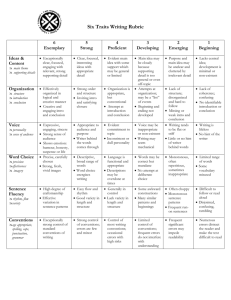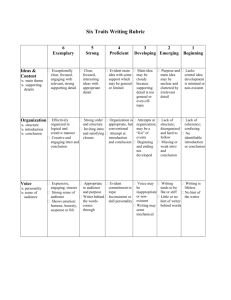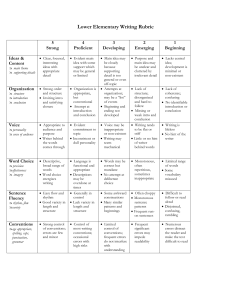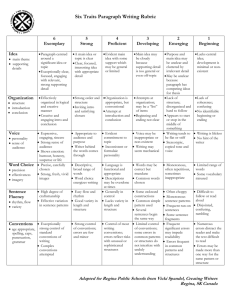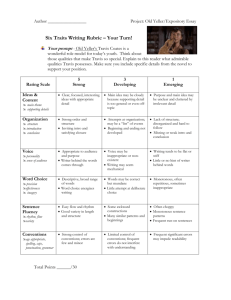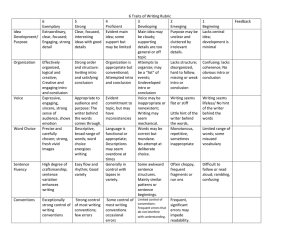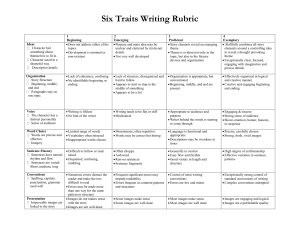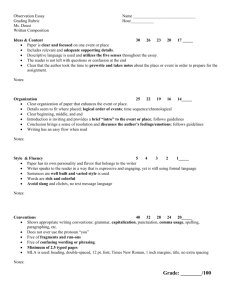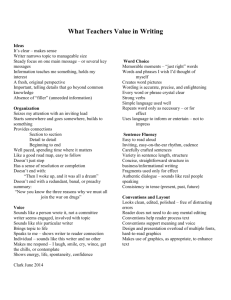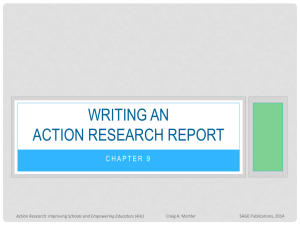Six Traits Writing Rubric: Assessment Guide
advertisement
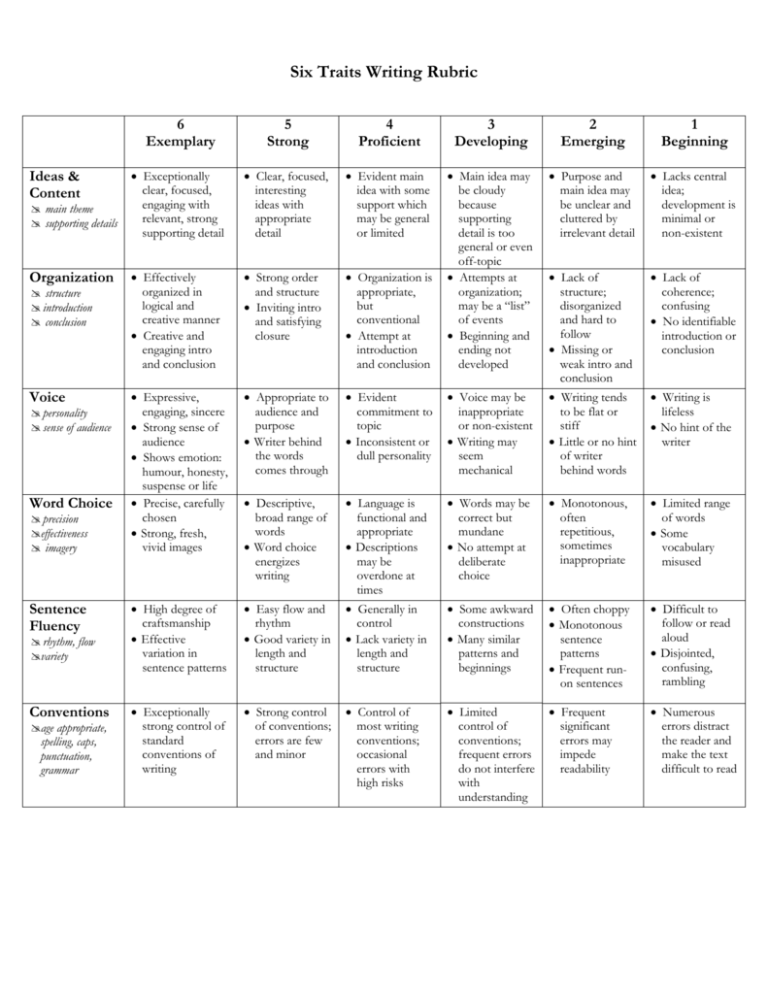
Six Traits Writing Rubric 6 Exemplary 5 Strong 4 Proficient 3 Developing 2 Emerging 1 Beginning Ideas & Content • Exceptionally clear, focused, engaging with relevant, strong supporting detail • Clear, focused, interesting ideas with appropriate detail • Evident main idea with some support which may be general or limited • Purpose and main idea may be unclear and cluttered by irrelevant detail • Lacks central idea; development is minimal or non-existent Organization • Effectively organized in logical and creative manner • Creative and engaging intro and conclusion • Strong order and structure • Inviting intro and satisfying closure • Organization is appropriate, but conventional • Attempt at introduction and conclusion • Main idea may be cloudy because supporting detail is too general or even off-topic • Attempts at organization; may be a “list” of events • Beginning and ending not developed • Lack of structure; disorganized and hard to follow • Missing or weak intro and conclusion • Lack of coherence; confusing • No identifiable introduction or conclusion Voice • Expressive, engaging, sincere • Strong sense of audience • Shows emotion: humour, honesty, suspense or life • Precise, carefully chosen • Strong, fresh, vivid images • Appropriate to audience and purpose • Writer behind the words comes through • Evident commitment to topic • Inconsistent or dull personality • Voice may be inappropriate or non-existent • Writing may seem mechanical • Writing tends to be flat or stiff • Little or no hint of writer behind words • Writing is lifeless • No hint of the writer • Descriptive, broad range of words • Word choice energizes writing • Language is functional and appropriate • Descriptions may be overdone at times • Words may be correct but mundane • No attempt at deliberate choice • Monotonous, often repetitious, sometimes inappropriate • Limited range of words • Some vocabulary misused Sentence Fluency • High degree of craftsmanship • Effective variation in sentence patterns • Easy flow and rhythm • Good variety in length and structure • Generally in control • Lack variety in length and structure • Some awkward constructions • Many similar patterns and beginnings • Often choppy • Monotonous sentence patterns • Frequent runon sentences • Difficult to follow or read aloud • Disjointed, confusing, rambling Conventions • Exceptionally strong control of standard conventions of writing • Strong control of conventions; errors are few and minor • Control of most writing conventions; occasional errors with high risks • Limited control of conventions; frequent errors do not interfere with understanding • Frequent significant errors may impede readability • Numerous errors distract the reader and make the text difficult to read # main theme # supporting details # structure # introduction # conclusion # personality # sense of audience Word Choice # precision #effectiveness # imagery # rhythm, flow #variety #age appropriate, spelling, caps, punctuation, grammar
